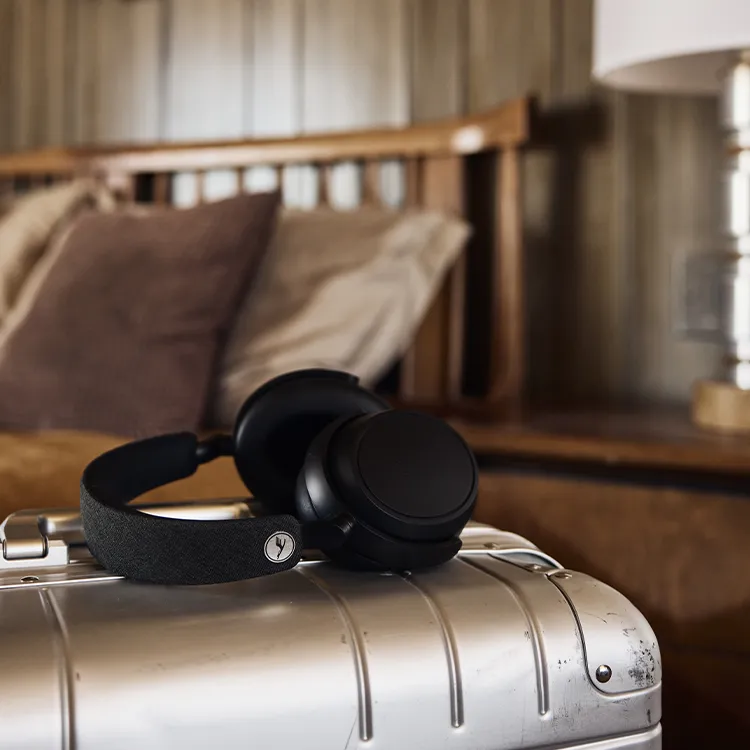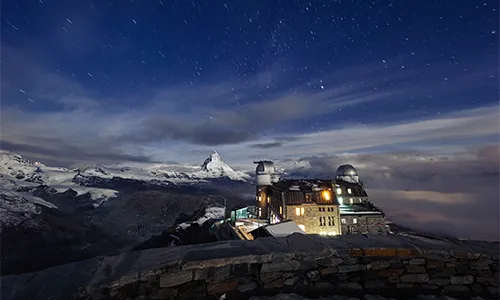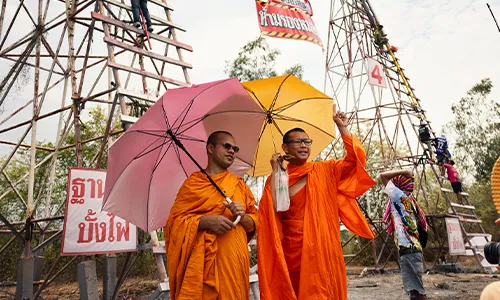Rio et son incroyable musique :
sur les traces de la bossa-nova

Sérgio de Martino nous parle de ses débuts. « Trois musiciens ont inventé la bossa-nova, Antônio Carlos Jobim, João Gilberto et Johnny Alf, qui s’appelait en réalité Alfredo José da Silva. » Personne ne sait aujourd’hui encore avec certitude lequel des trois attrapa en premier sa guitare pour insuffler à cette musique sa légèreté exceptionnelle. C’était l’époque du Brésil socialiste de la fin des années 1950 en pleine transformation, avec au cœur de celle-ci trois hommes, qui lancèrent une nouvelle musique qui allait déferler sur le monde entier.
« C’est ici qu’ils s’asseyaient à l’époque », raconte Sérgio de Martino en montrant la petite scène du doigt. « Ils jouaient et chantaient et le public les écoutait comme s’il avait été envoûté. » Les gens se pressaient dans la rue, des musiciens, des célébrités, des politiciens, des centaines de curieux : tous voulaient écouter cette musique, ces sonorités encore inconnues. « La musique était formidable. Elle dégageait une chaleur et une douceur similaires à la mer qui s’étend devant notre porte. »

Sérgio de Martino nous parle de ses débuts. « Trois musiciens ont inventé la bossa-nova, Antônio Carlos Jobim, João Gilberto et Johnny Alf, qui s’appelait en réalité Alfredo José da Silva. » Personne ne sait aujourd’hui encore avec certitude lequel des trois attrapa en premier sa guitare pour insuffler à cette musique sa légèreté exceptionnelle. C’était l’époque du Brésil socialiste de la fin des années 1950 en pleine transformation, avec au cœur de celle-ci trois hommes, qui lancèrent une nouvelle musique qui allait déferler sur le monde entier.
« C’est ici qu’ils s’asseyaient à l’époque », raconte Sérgio de Martino en montrant la petite scène du doigt. « Ils jouaient et chantaient et le public les écoutait comme s’il avait été envoûté. » Les gens se pressaient dans la rue, des musiciens, des célébrités, des politiciens, des centaines de curieux : tous voulaient écouter cette musique, ces sonorités encore inconnues. « La musique était formidable. Elle dégageait une chaleur et une douceur similaires à la mer qui s’étend devant notre porte. »

Sérgio de Martino nous parle de ses débuts. « Trois musiciens ont inventé la bossa-nova, Antônio Carlos Jobim, João Gilberto et Johnny Alf, qui s’appelait en réalité Alfredo José da Silva. » Personne ne sait aujourd’hui encore avec certitude lequel des trois attrapa en premier sa guitare pour insuffler à cette musique sa légèreté exceptionnelle. C’était l’époque du Brésil socialiste de la fin des années 1950 en pleine transformation, avec au cœur de celle-ci trois hommes, qui lancèrent une nouvelle musique qui allait déferler sur le monde entier.
« C’est ici qu’ils s’asseyaient à l’époque », raconte Sérgio de Martino en montrant la petite scène du doigt. « Ils jouaient et chantaient et le public les écoutait comme s’il avait été envoûté. » Les gens se pressaient dans la rue, des musiciens, des célébrités, des politiciens, des centaines de curieux : tous voulaient écouter cette musique, ces sonorités encore inconnues. « La musique était formidable. Elle dégageait une chaleur et une douceur similaires à la mer qui s’étend devant notre porte. »

De Martino montre une ancienne photo accrochée au mur du pub. On y voit Antônio Carlos Jobim, le maître de la bossa-nova, compositeur de « Chega de Saudade » et « Desafinado ». À l’époque, on ne pouvait pas encore parler de tubes. Ces morceaux ont ensuite été joués à Rio et Brasilia, des plages aux boîtes de nuit. Et puis vint un génie qui chamboula tout, João Gilberto.
Un jeune homme qui avait joué dans des groupes au lycée et animé des fêtes et des mariages. Gilberto est ensuite parti à Rio gagner sa vie en tant qu’intérimaire. Mais parallèlement, il s’entraînait sans relâche. Ses accords de guitare avaient quelque chose de translucide. Son jeu et sa voix évoquaient des palmiers dansant dans le vent. Lorsque l’hypersensible Gilberto enregistra le titre « Chega de Saudade » à l’été 1958, le temps s’est arrêté. « Une minute et 59 secondes qui ont tout bouleversé », écrivit plus tard l’auteur brésilien Ruy Castro.
Le champ et la guitare de João Gilberto étaient d’une douceur infinie et unique. Tous voulaient l’entendre. Chacun voulait jouer ainsi et vivre au son de cette musique qui reflétait douceur et beauté.
The next morning, people are out strolling, volleyball players warming up, beach boys strutting their stuff. Looming in the distance: Corcovado and Sugar Loaf Mountain. Bikinis, coconuts, papaya juice to kick the day off. Bossa nova could only have been invented here.
The music flows through the city like an elixir – to this day. Musicians like Israeli guitarist Yuval Ben keep it alive and reinvent it a little bit as well. Ben is playing in the Little Club tonight. Leaning against the wall with a glass of water during the break he says: ‘It’s subtle, elegant music. Bossa nova touches the finer nerves and tastes like a banana. Soft and sweet.’
Many other artists in Rio celebrate the bossa nova too. They perform in clubs and tour internationally. But the question remains: where does the beauty of the music ultimately lie? Where does the poetry come from?


The Brazilian composer Gastão Villeroy has his own approach to creating a new song. ‘I sing the melody’, he says. ‘No guitar, no piano, no accompaniment of any kind.’ With bossa nova, the melody is king. It has to be logical and sound absolutely natural. ‘In the end’, he says, ‘the song writes itself.’
No one wrote melodies like Antônio Carlos Jobim, the godfather of bossa nova. Jobim is a national hero in Brazil. Sacrosanct, almost like Pelé. They’ve even named Rio’s international airport after him: Aeroporto Antônio Carlos Jobim. A fitting testimonial. Flight. Becoming airborne. Jobim knew what that was like; his melodies had wings.
No one wrote melodies like Antônio Carlos Jobim, the godfather of bossa nova. Jobim is a national hero in Brazil. Sacrosanct, almost like Pelé. They’ve even named Rio’s international airport after him: Aeroporto Antônio Carlos Jobim. A fitting testimonial. Flight. Becoming airborne. Jobim knew what that was like; his melodies had wings.
Armando Pittigliani, now 89, also knows something about the magic. The bossa nova producer who helped create the wave explains it this way: ‘Bossa nova is the most beautiful thing we have. Why? I’ll tell you. It’s medicine. It’s the best heart medicine you can get in the whole wide world.’
Asked where he thinks the magic comes from, Flávio Mendes, another singer, guitarist, composer, says: ‘Bossa nova is like a tender caress.’ But a recipe? There’s no such thing. ‘If you listen to Gilberto, you’ll know why.’

No one wrote melodies like Antônio Carlos Jobim, the godfather of bossa nova. Jobim is a national hero in Brazil. Sacrosanct, almost like Pelé. They’ve even named Rio’s international airport after him: Aeroporto Antônio Carlos Jobim. A fitting testimonial. Flight. Becoming airborne. Jobim knew what that was like; his melodies had wings.
Armando Pittigliani, now 89, also knows something about the magic. The bossa nova producer who helped create the wave explains it this way: ‘Bossa nova is the most beautiful thing we have. Why? I’ll tell you. It’s medicine. It’s the best heart medicine you can get in the whole wide world.’
Asked where he thinks the magic comes from, Flávio Mendes, another singer, guitarist, composer, says: ‘Bossa nova is like a tender caress.’ But a recipe? There’s no such thing. ‘If you listen to Gilberto, you’ll know why.’
Armando Pittigliani, now 89, also knows something about the magic. The bossa nova producer who helped create the wave explains it this way: ‘Bossa nova is the most beautiful thing we have. Why? I’ll tell you. It’s medicine. It’s the best heart medicine you can get in the whole wide world.’
Asked where he thinks the magic comes from, Flávio Mendes, another singer, guitarist, composer, says: ‘Bossa nova is like a tender caress.’ But a recipe? There’s no such thing. ‘If you listen to Gilberto, you’ll know why.’


No one else made the music sound like silk. In his search for absolute beauty, Gilberto did nothing but play guitar, sing his verses and lose himself in harmonies, day and night. One day, he appears to have locked himself in the bathroom and played only for the tiles. Mister bossa nova, the most sensitive lonely heart of music history.
But perhaps there is a recipe after all. Perhaps all you need to do is to go down to the beach. To where the sea is and the palm trees rustle in the wind. Where the waves are so green. Where the sand is soft and life is warm. To the source of this whole Brazilian feeling for life.
All you have to do then is be able to play it.
No one else made the music sound like silk. In his search for absolute beauty, Gilberto did nothing but play guitar, sing his verses and lose himself in harmonies, day and night. One day, he appears to have locked himself in the bathroom and played only for the tiles. Mister bossa nova, the most sensitive lonely heart of music history.
But perhaps there is a recipe after all. Perhaps all you need to do is to go down to the beach. To where the sea is and the palm trees rustle in the wind. Where the waves are so green. Where the sand is soft and life is warm. To the source of this whole Brazilian feeling for life.
All you have to do then is be able to play it.


No one else made the music sound like silk. In his search for absolute beauty, Gilberto did nothing but play guitar, sing his verses and lose himself in harmonies, day and night. One day, he appears to have locked himself in the bathroom and played only for the tiles. Mister bossa nova, the most sensitive lonely heart of music history.
But perhaps there is a recipe after all. Perhaps all you need to do is to go down to the beach. To where the sea is and the palm trees rustle in the wind. Where the waves are so green. Where the sand is soft and life is warm. To the source of this whole Brazilian feeling for life.
All you have to do then is be able to play it.

Author


Photographer


Aluminium Collection
Travel companion

Discover the world with us




























